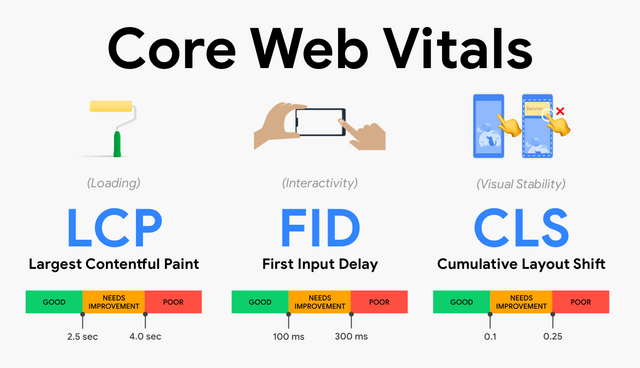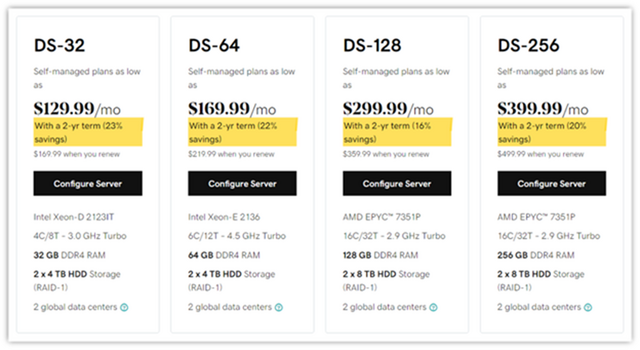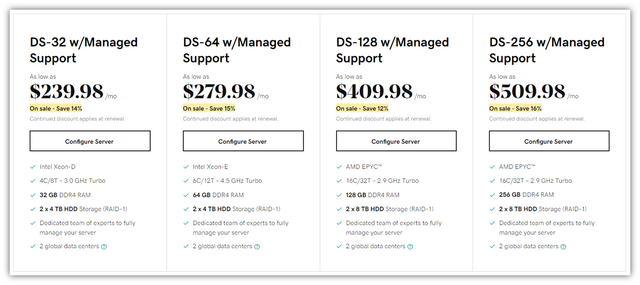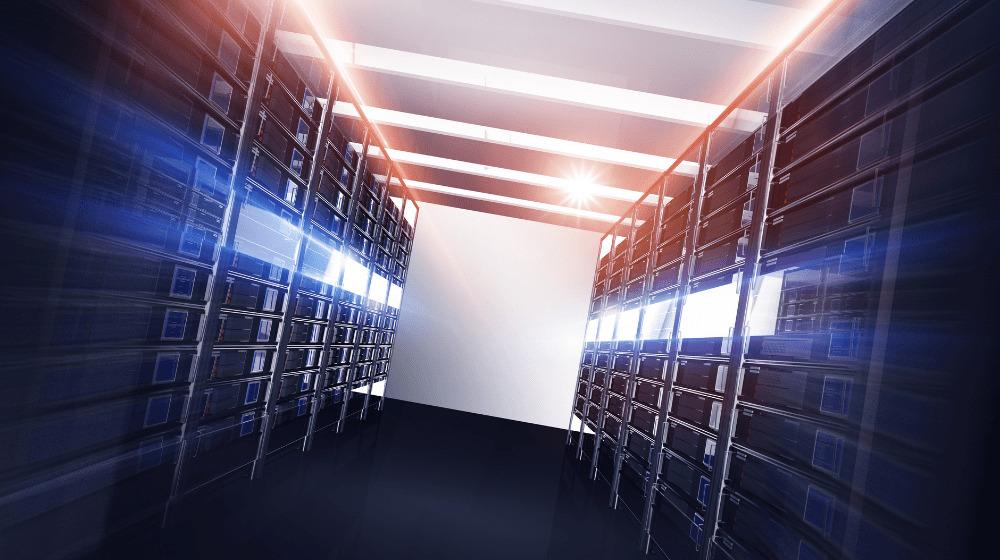In the realm of technical jargon that no one fully understands, the dedicated server sit pretty high up the hierarchy.
Trying to fully comprehend this concept requires a clearer understanding of many other technical terms. What is an operating system? What is server uptime? Do you know what Linux is? Or how about server bandwidth? Wait bare metal servers are a thing?
Trying to fully understand a dedicated server is just one of those things where you can spend hours in the rabbit hole reading about it but still understand about only 10% of its entirety. But fret not. That’s something we’re here to help out with.
In this article, we will discuss what a dedicated server is, what other types of servers there are, who should use dedicated servers, and how to set up your own dedicated server hosting.But before we get into what a dedicated server is and how a dedicated server works, let’s define what a server is.
What is a server?
A server is, well, an actual physical server computer hardware stored in data centers around the world. It performs specific functions. Now, I know this definition doesn’t tell you much, but I’m getting there. You’ll first need to understand what a client is.
Think of servers like a CPU. They are physical hardware that processes requests to perform certain functions.
In the world of computing, the term ‘client’ is used to refer to electronic devices (e.g. laptops and mobile phones) that make a specific request for the server to perform an action.
Say you want to load a page. You enter the URL into the browser’s search bar on your device (the client), and a request is then sent to the server to load the page. The server then processes your request and returns a web page loaded with content onto your screen.
But this is just one of the many types of functions a server can perform. And different servers perform different functions. In this scenario, the server responsible for loading a web page is called a web server and it performs functions related to web hosting.
Other types of servers are able to perform functions and provide hosting solutions unique to them. For example, email servers are used to host email accounts and facilitate email migrations.
What is a dedicated server and what is dedicated server hosting?
As its name suggests, dedicated server hosting essentially means that a business has a server computer all to itself. That said, the hosting provider is still the organisation providing the actual server, a physical location to store it, as well as associated services such as technical support.
Now, it is important to distinguish between categories of servers here. Web, email and domain name servers (DNS) are classifications based on function. Dedicated, shared, and virtual private servers (VPS) are classifications based on the number of sites hosted on the server. A web server, can be dedicated or shared.
Are they worth it: Why should you consider dedicated server hosting?
1. Your website is growing and needs to be able to handle an increase in traffic
If you anticipate that your website is going to grow quickly and want your business to be scalable, it might be a good idea to opt for a dedicated server now. If your site is using shared hosting, it is competing with other sites for the hosting provider’s resources to load your web pages efficiently.
[blockquote] Using dedicated server hosting is key in helping you scale your business. [/blockquote]
When your traffic spikes, your site’s performance could drop significantly. This can lead to a snowball effect in which other marketing and sales metrics like higher bounce and conversion rates can be affected. User experience (UX) will also be detrimentally affected. If you do not make preparations to start using a more robust server, your site could even crash when traffic becomes very high.
2. Page loading speeds will plunge
Your page loading times can have a significant impact on practically all aspects of your website. Slow pages can lead to poor user engagement metrics and high bounce rates. You definitely don’t want your intended audience to leave your site and go to your competitors’ pages due to page speed issues.

What’s more, page speed, along with site responsiveness and visual stability, can be measured by a set of metrics called the Core Web Vitals. And these have been confirmed by Google to be official SEO ranking factors. This means that if page load speeds issues persist on your site, Google may deprioritize your site when it comes to ranking on page one. After all, Google is still a business entity with a group of users it serves. It will not want to serve poor quality web pages as search results to users.
Opting for a dedicated server will give you the bandwidth you need to enhance your page loading times.
3. Security is a concern for your website
Security is important for every website, but especially for those handling sensitive information. This could include confidential emails, credit card numbers, or sensitive customer information. It's crucial to protect this information and your website from viruses, hacks, and other risks.
With a dedicated server, you're completely in charge of your site's security. This means you can optimize the features you need for the specific requirements of your website and stored files. Of course, you're also responsible for how these features are implemented, but this is one of the benefits of flexibility.
However, some hosts offer fully-managed and semi-managed maintenance plans. In a nutshell, you can often specify what both you and your host will be responsible for, which means you can trust an expert with mission-critical functionality, while handling all other concerns directly.
4. Having control over your server is important to you
The final reason you may want to choose a dedicated server over other options is a simple one: control. We've alluded to this in previous sections, but dedicated hosting gives you complete responsibility over how you choose to use your server.
For example, you're even free to choose the server software you prefer. If you favor the resource control of NGINX over Apache, you have the power to do so. You can also adjust hardware specifications and install your own operating system (OS).
Furthermore, you gain direct access to all the tools needed to manage your website’s folders via control panels like cPanel, Web Host Manager (WHM), databases, email accounts, SSL certificates, subdomains, and more.
You can even also choose your server’s data center, allowing you to ensure the best speeds possible between a website or application and its visitors – on a global scale.
Because of this, dedicated hosting may be an enticing option for advanced web developers, and those with unique and specific requirements.
How many websites can you host on a dedicated server?
If you plan to host mainly static HTML sites, then you need a server with large hard drive space and fast spindle speed. You can easily host up to 250 to 500 websites on one server.
If most of the sites are built using CMSes like WordPress, Joomla, and Drupal. then you will need to increase the processing power (CPU) and memory (RAM) on the web server to handle the load. You may need a medium-sized dedicated server for up to 150 websites.
Dedicated server aside, what other types of servers are there?
What is the difference between a dedicated and non-dedicated server you ask?
1) Shared server vs dedicated server
Unlike a dedicated server, shared servers hosts multiple websites at the same time. It’s like having one big computer where everyone else shares. They store files, databases, email accounts, etc., on the same machine.
If you're just starting out, shared hosting might be fine. But think about what happens when your blog gets popular. Shared hosting is great for smaller sites, but once your traffic starts growing, you'll want a dedicated server.
If you're running multiple web servers, each server needs access to the same data. This makes it harder to scale up quickly, since you need to make sure that everything works together. This not only poses a security threat, but can also affect your site’s performance as server resources are shared between all sites hosted on the server.
On the other hand, a dedicated server is like having your own computer. Your site has its own space, separate file storage, database, email account, etc. You don't have to worry about compatibility issues, and you can customize every aspect of your environment.
You could even run multiple dedicated servers on the same machine, giving you the benefits of both worlds.
2) Virtual private server (VPS) vs dedicated server
As the term “virtual private server” suggests, VPS is actually similar to a shared server. But a VPS is also similar to shared hosting in the sense that you’ll have multiple sites hosted on the same server.
But unlike a shared server where server resources are shared among all sites it hosts, sites hosted on a VPS have a micro-environment that mimics how a dedicated server works. And because of this micro-environment, VPS makes a better hosting server than shared servers as it does not require the sharing and has higher security.
You can think of hosting your site on a shared server as renting a room in an apartment, while VPS hosting is like renting an apartment in a building. You are able to overcome the challenges that come with using shared hosting, but the benefits aren’t quite as great as dedicated hosting. Of course, whether this is a good thing or not depends on your personal hosting needs.
Who should use dedicated hosting?
1) Midsize to large companies
These companies tend to have large sites with a large number of web pages and manage large amounts of data. If your business contains large amounts of database, supply chain infrastructure, and thousands of eCommerce transactions per hour, you need a dedicated web server.
2) System administrators, developers, and information technology businesses
For system administrators, developers, and IT professionals who need to customize their server environments according to their needs and run resource-intensive websites — including software development kits (SDKs), cloud platforms, and content management systems — dedicated servers remain the best choice for hosting requirements.
3) Agencies and web hosting resellers
Many of them need dedicated servers to host their clients’ websites. A dedicated server helps them manage their clients’ sites without having to worry about managing multiple web hosts.
How to get and set up a dedicated server?
1) Choose a reliable hosting service provider
As with any service-based industry, there are probably countless companies that do the same thing. How do you identify those who are trustworthy and worth every penny?

One way to make an assessment is by looking at the strength of its customer support services. A good and reliable business will always go out of its way to ensure that it helps their customers with every issue they are facing. And over at GoDaddy, we do just that.
We provide our customers with direct access to our customer support team so that all their queries can be quickly addressed.
2) Decide if you want help managing it
If you’re not a super technical person or do not have a technical member on your team, you might want to go with managed dedicated hosting services.
Opt for managed dedicated hosting services if you need professional expertise in setting up and managing your server.
GoDaddy’s managed dedicated hosting service provides you with 24/7 technical support and server management services. Our experts will monitor your server around the clock. Apart from a strong support team dedicated to your business, GoDaddy’s managed dedicated hosting service comes with the following services as well:
- Managed updates and patching
If you're tired of having to manually update and patch your servers, we've got you covered. Our cloud platform automatically updates them for you.
- 99.9% server uptime guaranteed
Never miss opportunities to engage with a customer (or potential customer). That’s why we offer a 99.9% uptime guarantee. And if we don’t uphold the guarantee, you may be eligible for a discount on your purchase during that time.
- Monitoring and alerts
Monitor server uptime, resources (CPU, RAM and Storage) and Domains — stay informed with alert notifications.
- Security with a free SSL certificate
With our free SSL certificate security set up, we monitor your network 24/24 with advanced DDoS protection, and give you a dedicated IP address for the first year.
- We support you in the scaling of your business
With Fully Managed dedicated server hosting, you don't need to worry about upgrading your servers yourself; we take care of everything for you. This puts your mind at ease when you need to scale your website as your business grows.
- Higher availability and faster performance
You get RAID1 mirrored disk drives for a faster read and greater data redundancy if one of the disks fails.
- Easy access to your website’s folders
GoDaddy provides you with control panels (cPanel/WHM or Plesk Obsidian Webhost Edition) for easy server administration and access to your website’s folders to make certain technical implementations.
3) Choose between HDD or SSD NVMe disk types
Different people have different business needs. And based on them, you may choose between two disk types: HDD and SSD NVMe. HDDs (hard disk drives) are traditional spinning disks. While they provide the highest disk space storage capacities, they are not the fastest options.
For customers with a high demand on read-/write performance, GoDaddy now offer SSD NVMe that have stronger computing power and can handle heavier workloads. SSDs (solid state drives) are much faster than HDDs due to the fact that they don’t have any moving parts. To increase performance even further, we offer NVMe SSDs, which use the NVMe interface specification for PCI Express-based solid drives.
NVMe drives are not affected by the bottlenecks of the ATA interface – delivering up to 4X better IOPS (Input/Output Operations Per Second) than the fastest SAS option available.
4) Choose between the different hosting plans
GoDaddy offers two separate hosting plans for managed dedicated server hosting and self-managed server hosting. Here is are the pricing tables for:
Unmanaged dedicated servers

Managed dedicated server hosting
And that’s it!
There you have it! Here is everything you need to know about dedicated servers and how you can set one up yourself. And if you’re looking for the best dedicated server hosting, you’ve come to the right place.
For those looking for powerful server capabilities, require deep server access, complete control and flexible server configurations, our Dedicated Server Hosting also provides powerful server options with isolated resources to securely run mission critical applications and applications where latency in processing time matters, as well as uptime.
Now, setting it up on your own requires some level of technical expertise. And if you’re not keen on unmanaged dedicated hosting services and need help with it, opt for GoDaddy’s managed dedicated server hosting service instead. Not only will you receive technical support with regard to the setting up process and server management, but we’ll also provide 24/7 support service to address your every query.
So what are you waiting for? Reach out to us and sign up for GoDaddy’s dedicated server hosting today!
FAQs about GoDaddy’s dedicated server hosting solutions
1) Will there be any downtime upgrading to dedicated server hosting?
Yes.. Although the average time for us to provision your new server will likely be a few minutes, it may take up to 24 hours or more. But, if you need your hosting right away, call us at (480) 463-8824 and we'll do our best to speed things up.
2) Which type of operating systems do GoDaddy’s dedicated servers run on?
They run on the Linux operating system.










